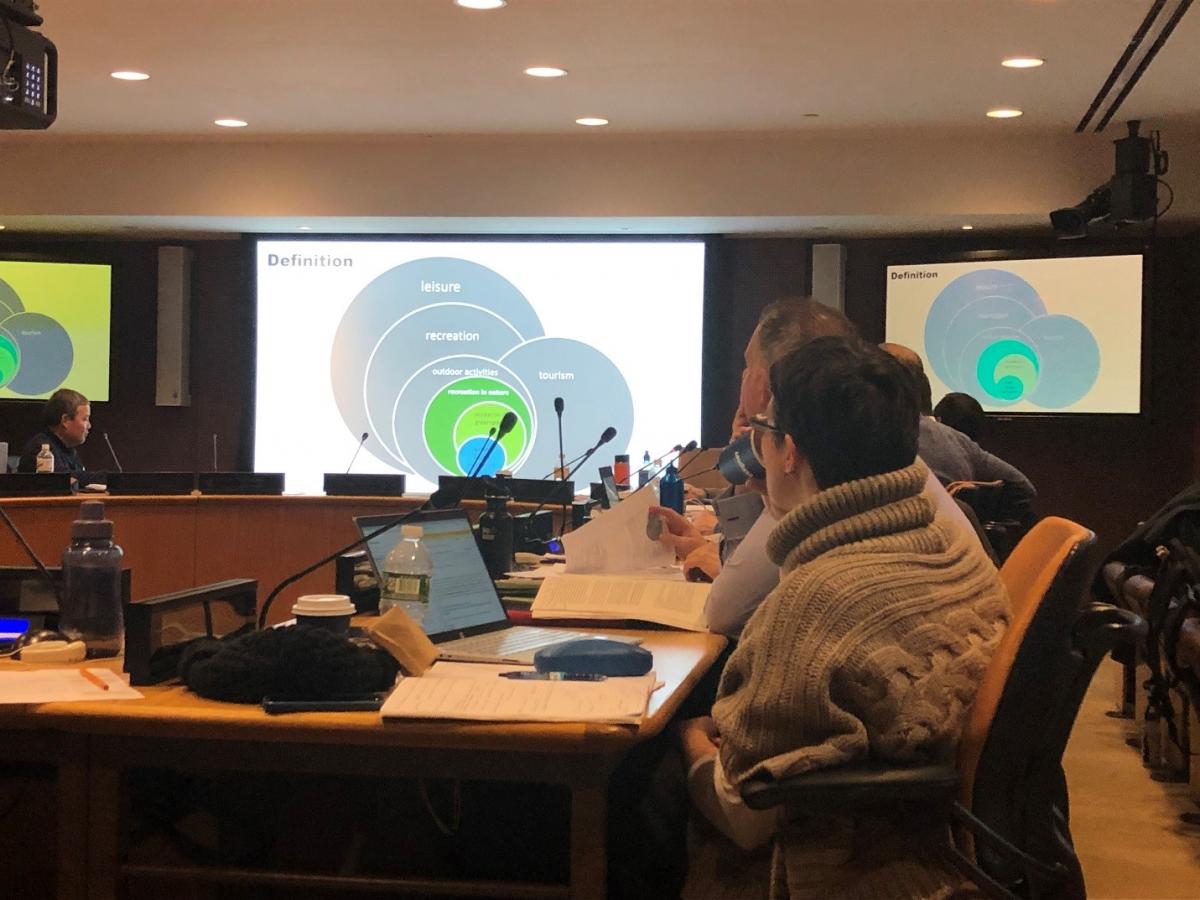Expert Meeting on Advancing the Measurement of Ecosystem Services for Ecosystem Accounting
From 22-24 January 2019, a working group of approximately 20 ecosystem accounting experts from around the world gathered at UN Headquarters in New York to discuss the measurement of key ecosystem services. As part of the revision process of the System of Environmental-Economic Accounting 2012—Experimental Ecosystem Accounting (SEEA EEA), this working group, led by Rocky Harris (Department for Environment, Food and Rural Affairs of the United Kingdom), worked to draft issues papers on the measurement and valuation of select ecosystem services. The goal of the meeting was to reach a common understanding of measurement and valuation issues for specific ecosystem services. In particular, the working group focused on water supply, water purification, carbon sequestration, agriculture and forestry provisioning, fisheries provisioning, air filtration, soil retention and water regulation, habitat and biodiversity, and recreation services. The discussions for each of these services covered several aspects of measurement and valuation, bringing up key points for further consideration over the revision process.
For example, in terms of water supply services (Session 3), the discussion covered a range of topics, from the definition of the services themselves and need for distinction between the abstraction of water (commonly considered a provisioning service) and the role of the ecosystem in making water available (commonly considered a regulating service), to the challenge of how to treat navigation and non-consumptive uses of water. Participants also noted the link to the recording of stocks and flows in the SEEA Central Framework as a key issue to be clarified in the revision process.
The wide scope of issues for each ecosystem service was also on display during the session on habitat and biodiversity (Session 8). One key issue was the need for clarification with respect to biodiversity in the delivery of ecosystem services, in particular the roles of biodiversity in supporting cultural ecosystem services as well as in maintaining the capacity for the future delivery of ecosystem services. The salience of biodiversity was also highlighted during the session, as several participants noted that there is currently a window of opportunity for biodiversity-related measurement to impact the post-2020 biodiversity framework.

David Barton from the Norway Institute of Nature Research presenting on ecosystem recreation services (Session 9).
Biodiversity and water supply were only a few of the sessions covered during the workshop, and all of the workshop documents can be found here. The conclusions reached from the papers and the meeting will inform broader agreed definitions and treatment of valuation for ecosystem services for the SEEA EEA. In particular, a working group led by Juha Siikimaki, Chief Economist of the International Union for Conservation of Nature (IUCN), will work from the findings of the ecosystem service working group to reach a conceptual framework for valuation of ecosystem services and identify appropriate accounting treatments for ecosystem services. Key issues that the group will tackle include 1) defining exchange and welfare values, articulating institutional arrangements and establishing the valuation context for ecosystem accounting; 2) ecosystem disservices and externalities; 3) approaches to the valuation of ecosystem assets; and 4) issues and options in accounting for ecosystem degradation and enhancement of ecosystem assets.
